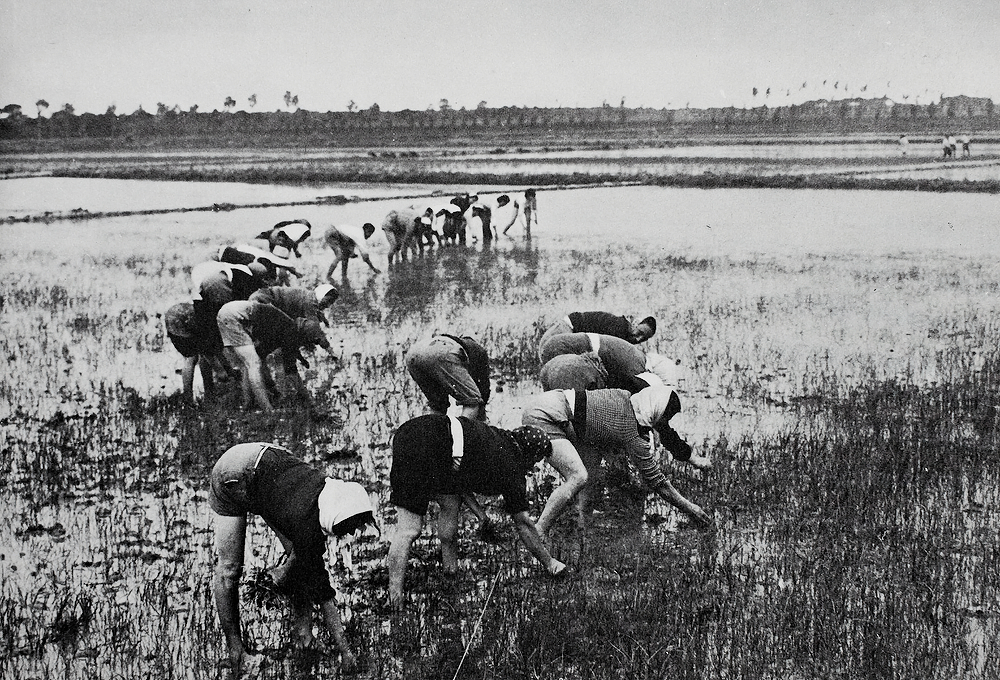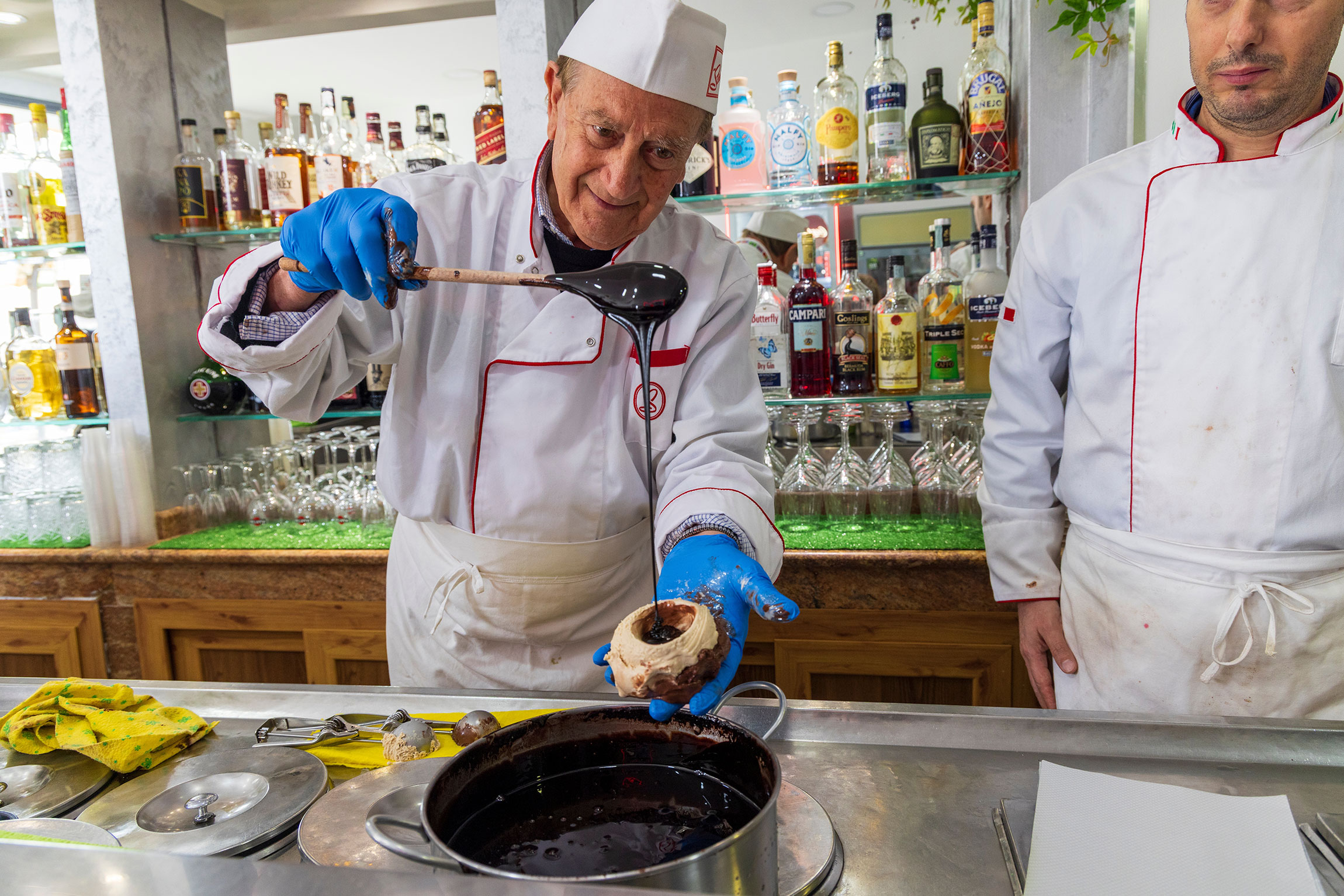Italian celebrations for International Women’s Day are, usually, rather cliché: journalists and TV hosts become experts of women history and sociology, bringing out their customary speeches for the occasion, only to forget it all the following day, when they focus once again on this or that starlet’s surgically enhanced décolleté, or introducing with nonchalance scantily clad dancers on prime time TV.
On the morning of the 8th of March, women all over the country wake up feeling, all of a sudden, the urge to delve into the depths of an ancestral sisterhood they had probably forgotten all about since the previous year: it’s time to bunch up and hit the town, get tipsy and stick 5 euro notes in some random male stripper’s thong, all in name of feminism.
Alas, these scenes are not peculiar to Italy only. They are mirror to the commercialisation, marketing and vulgarisation of a day originally conceived to celebrate women’s struggle to reach equality. To be honest, as in the case of Father’s Day, Mother’s Day and all the likes, I do wonder how right really is to have dedicated days for people or achievements we should remember every hour, every day, every year. A pretty thorny matter, if you ask me, so let’s leave it aside.
International Women’s Day, then: we have it in Italy, as we have it in the US and I really think we all celebrate it the same way. I am not sure you have the habit to gift mimosa flowers to your sisters, mothers and wives, but I’m pretty sure that, if it’s not them, it’s some other pretty, fragrant Spring flower.
In the US, however, there is more than one day to think about women and their achievements, there is whole month. March has been, since 1987, Women History Month, the time of the year when we should all stop and focus on what it means being a woman and what it meant throughout history. If you ask me, this is certainly a much more significant initiative than a 24-hour-long surge of often misguided interest in women’s struggles, and I wish Italy had something like this, too.
Of course, I could shell words as peas off their pod about the great female figures in modern and contemporary history who became symbols of Italian womanhood, but I wouldn’t say anything you don’t know: let’s celebrate all the Montalcinis, Cristoforettis and Lorens of the country, but let’s not linger on them, not today.
If you allow me, I’d like to borrow the next minute or two to tell you about the other women of Italy, those who haven’t made it on history books by name, but built the country nevertheless, through their daily struggles, decisions and resilience.
I think about the women of World War Two, who found themselves alone, husbands and brothers sent to the front. Sometimes with fields and animals to tend to, sometimes with their husband’s businesses to run, always with the duty to feed a family with nothing and hide the fear and terror of loosing their beloved from the eyes of their children. Women who lost it all when they were little more than teenagers, alone with children and an MIA husband who would never return from the Eastern Front, but whom they were to wait for until old age, the door of their apartment always unlocked for him.
Women who, on that 2nd of June 1946, put on their best shoes and Spring coat to go down the local Elementary School and vote for the first in their lives, to choose whether our country was to become a Republic or remain a Monarchy, to decide who was to govern Italy democratically after more than 20 years of dictatorship. Many of these women had barely known democracy, all of them had vividly in mind the horror of the war, and knew what praying while feeling hunger pangs under daily bombings meant. They made history, each and every one of them, in a way no other woman before and after them managed to do, and they did so with the joy, composure and strength typical of their generation.
Women upon whose shoulders and sturdy legs the Italian economy thrived, often trampling on their rights and dignity. Le Mondine, the women of the rice fields of Northern Piedmont, who would travel from Veneto, Lombardy and Emilia Romagna to work in strenuous conditions for 15 hours a day, under the sun, their legs into the water, perennially pestered by insects biting their faces. Most of them barely went to school, but oh did they fight to get better working conditions and some more lire to better support their families back home.
And then, our mothers, who got full time jobs straight after graduation, in male dominated fields: women who, for decades, were the only “she” in their office, who juggled to perfection a family and their career. Because a career they were to have, thanks to their hard work, intelligence and strength, eventually opening up the way for other women to get jobs like theirs, to get their desks in those once male-only offices.
Simple women, just like many others in Italy and, indeed many also in the US and the rest of the world, who silently, with dignity, kindness and immense, inconceivable strength allowed us today to enjoy more freedom and more equality. It’s about them we should think this month, because we, women of today’s Italy, are their children and grandchildren.
We enjoyed their company, we were nurtured by their love, we learned how to stand straight and proud by looking at them. They, too, made the history of women in Italy.
Le celebrazioni italiane per la Giornata internazionale della donna sono, di solito, più che altro dei cliché: giornalisti e conduttori televisivi diventano esperti di storia e sociologia femminile, con cui riempiono per l’occasione i loro abituali discorsi, per dimenticare tutto il giorno dopo, quando tornano a concentrarsi ancora una volta sul décolleté gonfiato chirurgicamente da questa o quella starlet, o presentando con disinvoltura ballerini in abiti succinti in prima serata.
La mattina dell’8 marzo, in tutto il Paese le donne si svegliano, sentendo, all’improvviso, la voglia di addentrarsi nelle profondità di una sorellanza ancestrale che probabilmente avevano completamente accantonato dall’anno precedente: è il momento di riunirsi e fare baldoria, diventare un po’ brille e infilare 5 euro a caso nel perizoma di uno spogliarellista, tutto in nome del femminismo.
Ahimè, queste scene non sono caratteristiche solo dell’Italia.
Rispecchiano la commercializzazione, il marketing e la volgarizzazione di un giorno concepito originariamente per celebrare la lotta delle donne per raggiungere l’uguaglianza. Per essere onesti, come nel caso della festa del papà, della festa della mamma e di tutte le feste simili, mi chiedo quanto sia giusto avere giorni dedicati per le persone o per le conquiste che dovremmo ricordare ogni ora, ogni giorno, ogni anno. Una questione piuttosto spinosa, a mio parere, quindi meglio lasciarla da parte.
Dunque, la Giornata internazionale della donna: ce l’abbiamo in Italia, come ce l’avete negli Stati Uniti e penso davvero che la celebriamo tutti allo stesso modo. Non sono sicura che abbiate l’abitudine di regalare fiori di mimosa alle vostre sorelle, madri e mogli, ma sono abbastanza sicura che, se non sono quelle, è un altro grazioso, fragrante fiore di primavera.
Negli Stati Uniti, tuttavia, c’è più di un giorno per pensare alle donne e ai loro risultati: c’è un mese intero. Marzo è stato, sin dal 1987, il Mese della Storia delle Donne, il periodo dell’anno in cui dovremmo tutti fermarci e concentrarci su cosa significhi essere donna e su cosa significhi nel corso della storia. Se me lo chiedete, questa è certamente un’iniziativa molto più significativa di 24 ore di (cattivo) interesse alle battaglie delle donne, e vorrei che anche l’Italia avesse qualcosa di simile.
Certo, potrei tirar fuori parole come piselli dal loro baccello sulle grandi figure femminili della storia moderna e contemporanea che sono diventate simboli della femminilità italiana, ma non direi nulla che già non conoscete: festeggiamo tutti le Montalcini, le Cristoforetti e le Loren del Paese, ma non soffermiamoci su di loro, non oggi.
Se me lo permetterete, mi piacerebbe usare i prossimi minuti per parlarvi di altre donne italiane, di coloro che non trovano il loro nome sui libri di storia ma che hanno comunque costruito il Paese, attraverso le loro lotte quotidiane, le decisioni e la resilienza.
Penso alle donne della Seconda Guerra Mondiale, che si sono ritrovate sole, mariti e fratelli mandati al fronte. A volte con i campi e gli animali a cui badare, a volte con le imprese del marito da mandare avanti, sempre con il dovere di sfamare una famiglia senza avere nulla e di nascondere, agli occhi dei figli, la paura e il terrore di perdere il loro amato. Donne che hanno perso tutto quando erano poco più che adolescenti, sole con i figli e un marito disperso che non sarebbe mai tornato dal Fronte Orientale, ma che avrebbero aspettato fino alla vecchiaia, la porta di casa sempre aperta per lui.
Donne che, il 2 giugno 1946, indossarono le scarpe migliori e il cappotto primaverile per raggiungere la scuola elementare e votare per la prima volta nella loro vita, per scegliere se il nostro Paese doveva diventare una Repubblica o rimanere una monarchia, per decidere chi avrebbe governato l’Italia democraticamente dopo oltre 20 anni di dittatura. Molte di queste donne avevano a malapena conosciuto la democrazia, tutte avevano vividamente in mente l’orrore della guerra, e sapevano che cosa significava pregare sentendo i morsi della fame sotto i bombardamenti quotidiani.
Hanno fatto la storia, ognuna di loro, in un modo che nessun’altra donna prima nè dopo è riuscita a fare, e lo hanno fatto con la gioia, la compostezza e la forza tipiche della loro generazione.
Donne sulle cui spalle e gambe robuste prosperò l’economia italiana, spesso calpestando i loro diritti e la loro dignità. Le Mondine, le donne delle risaie del Piemonte settentrionale che viaggiavano dal Veneto alla Lombardia e all’Emilia Romagna per lavorare in difficili condizioni per 15 ore al giorno, sotto il sole, le gambe nell’acqua, perennemente infestate dagli insetti che pizzicavano il viso. La maggior parte di loro è andata a scuola a malapena, ma hanno combattuto per migliorare le condizioni di lavoro e avere qualche altra lira per sostenere meglio le loro famiglie a casa.
E poi, le nostre madri, che hanno ottenuto lavori a tempo pieno subito dopo la laurea, in campi dominati dagli uomini: donne che, per decenni, erano le uniche “lei” nel loro ufficio, che giostravano alla perfezione una famiglia e la loro carriera. Perché hanno fatto carriera, grazie al loro duro lavoro, all’intelligenza e alla forza, e che alla fine hanno aperto la strada ad altre donne perché ottenessero un lavoro come il loro, perchè avessero le loro scrivanie in quegli uffici un tempo solo di uomini.
Donne semplici, come molte altre in Italia e molte altre anche negli Stati Uniti e nel resto del mondo, che silenziosamente, con dignità, gentilezza e forza immensa e inconcepibile, ci hanno permesso oggi di godere di maggiore libertà e più uguaglianza. È a loro che dovremmo pensare in questo mese, perché noi, donne dell’Italia di oggi, siamo le loro figlie e le loro nipoti.
Abbiamo apprezzato la loro compagnia, siamo state nutrite dal loro amore e, guardandole, abbiamo imparato a stare dritte e orgogliose. Anche loro hanno fatto la storia delle donne d’Italia.




























